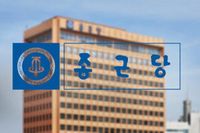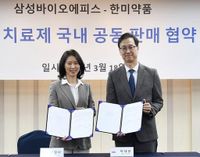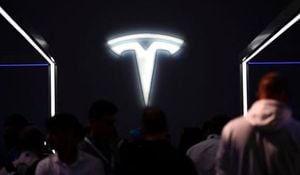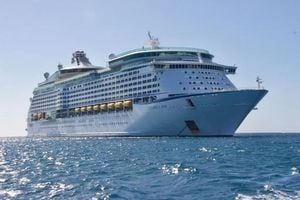The market for osteoporosis treatment is heating up as major pharmaceutical companies compete over the blockbuster drug Prolia (denosumab). As of mid-March 2025, South Korean firms Daewoong Pharmaceutical, Hanmi Pharmaceutical, and Jong Kun Dang are gearing up for a fierce contest in the domestic market.
On March 19, 2025, Daewoong Pharmaceutical officially announced the launch of Celltrion Pharmaceutical's Stelocla (denosumab), which is the first biosimilar of Prolia introduced in South Korea. The launch follows a joint sales agreement between Daewoong and Celltrion finalized in October 2024 that outlines each company's roles. While Celltrion is tasked with maintaining product quality and efficacy, Daewoong aims to leverage its robust sales and marketing networks to strengthen its market presence.
Prolia, originally developed by Amgen, has become a global blockbuster, recording approximately 6.05 trillion won in global sales last year alone. In South Korea, the domestic market for osteoporosis treatments measured around 174.9 billion won in 2024, according to the pharmaceutical market research firm IQVIA.
Stelocla not only marks Daewoong's entry into the biosimilar market but also incorporates an innovative syringe design. The new design allows for the auto-retraction of the needle after injection, significantly reducing the risk of needle injuries. Furthermore, the product is latex-free, catering to patients with sensitivities, making it an appealing choice for consumers who can worry about usage safety. The pricing strategy for Stelocla sets its cost at 28% lower than the original Prolia, aiming to ease the financial burden on patients whilst increasing accessibility to treatment.
In the face of this changing landscape, Hanmi Pharmaceutical is also making moves. On the same day as Daewoong's announcement, Hanmi revealed a joint agreement with Samsung Bioepis to launch their own Prolia biosimilar, under the project name SB16, in South Korea. This partnership designates Samsung Bioepis as the developer responsible for production and supply, while Hanmi will manage the marketing and sales efforts. Hanmi's existing infrastructure, particularly its sales network built through its previously launched osteoporosis treatment Rabonty, should benefit the collaboration.
However, Samsung Bioepis's biosimilar has not yet completed the regulatory approval process in South Korea. The companies expect to receive approval and subsequently launch the product within 2025. Once Samsung Bioepis finalizes the necessary permissions and overcomes any potential patent disputes, the competition between Daewoong and Hanmi, alongside Jong Kun Dang – which continues to sell the original Prolia – is expected to intensify substantially.
In light of this imminent competition, Daewoong plans to adopt a 'verification four-stage' strategy, focusing on refining its marketing messages based on real-time market feedback. Meanwhile, Hanmi aims to emphasize a 'clinical-centered marketing strategy,' drawing from literature and clinical data to attract healthcare professionals and patients alike. Jong Kun Dang, on the other hand, is expected to leverage the established brand power of Prolia to maintain its market share by showcasing global prescription data while relying on existing demand.
This scenario illustrates a significant shift within the South Korean pharmaceutical landscape, accentuating the stakes in the osteoporosis market as major players prepare to leverage innovations, pricing strategies, and established networks to secure their slice of the growing market. With the launch of biosimilars like Stelocla, affordability and accessibility for patients are poised to enhance, benefitting a broader swath of the population with osteoporosis.





